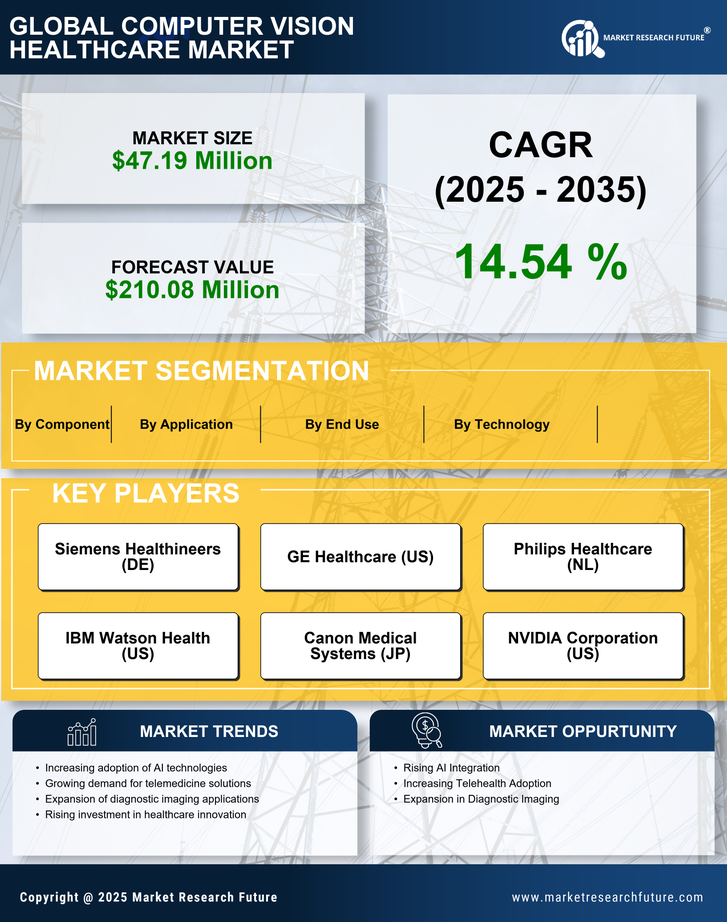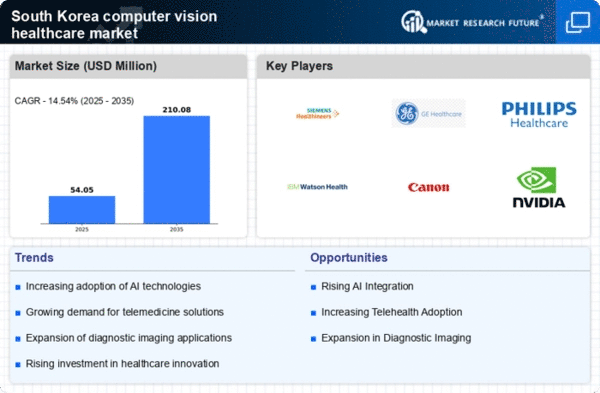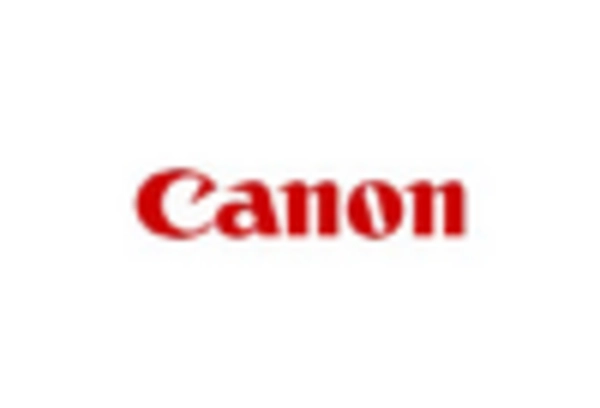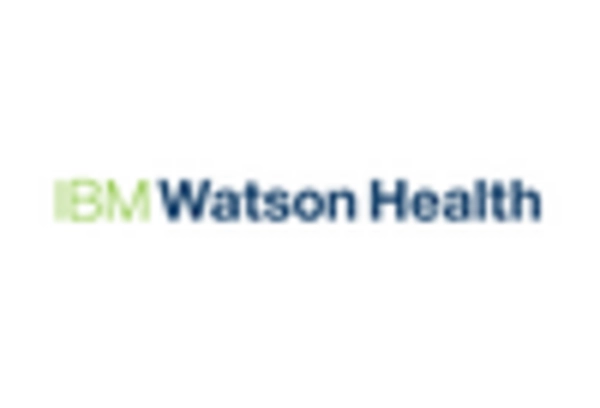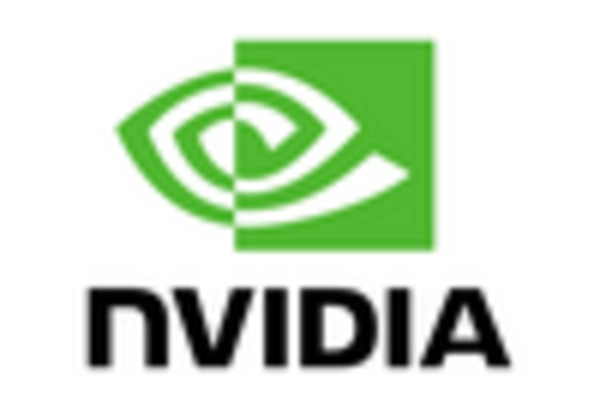Increased Focus on Preventive Healthcare
There is an increasing focus on preventive healthcare in South Korea, which is driving the computer vision-healthcare market. This shift towards prevention emphasizes early detection and intervention, reducing the burden on healthcare systems. Computer vision technologies are instrumental in this paradigm shift, enabling the analysis of medical images for early signs of diseases. The preventive healthcare market is projected to grow at a CAGR of 20% over the next five years, indicating a robust demand for computer vision solutions that facilitate proactive health management. This trend is likely to encourage healthcare providers to adopt advanced technologies to enhance patient care.
Rising Demand for Telemedicine Solutions
The computer vision-healthcare market in South Korea is experiencing a notable surge in demand for telemedicine solutions. This trend is driven by the increasing need for remote patient monitoring and consultations, particularly in urban areas where healthcare access can be limited. The integration of computer vision technologies enhances telemedicine platforms by enabling real-time image analysis and diagnostics. According to recent data, the telemedicine market in South Korea is projected to grow at a CAGR of approximately 25% over the next five years. This growth is likely to be fueled by advancements in computer vision applications, which improve the accuracy and efficiency of remote healthcare services.
Growing Investment in Health Tech Startups
The computer vision-healthcare market is benefiting from increased investment in health tech startups in South Korea. Venture capital funding for innovative healthcare solutions has seen a significant uptick, with investments reaching approximately $500 million in the last year alone. This influx of capital is fostering the development of cutting-edge computer vision applications that address various healthcare challenges. As startups continue to innovate and bring new solutions to market, the overall landscape of the computer vision-healthcare market is likely to evolve rapidly, creating new opportunities for growth and collaboration.
Aging Population and Increased Healthcare Needs
An aging population in South Korea is a critical driver of the computer vision-healthcare market. As the demographic shifts towards an older population, there is a corresponding increase in healthcare needs, particularly in areas such as chronic disease management and geriatric care. Computer vision technologies can play a vital role in monitoring health conditions and facilitating early diagnosis, which is essential for this demographic. It is estimated that by 2030, over 20% of South Korea's population will be aged 65 and older, creating a substantial market opportunity for computer vision applications in healthcare.
Technological Advancements in Imaging Techniques
Technological advancements in imaging techniques are significantly influencing the computer vision-healthcare market in South Korea. Innovations such as 3D imaging, augmented reality, and enhanced image processing algorithms are transforming diagnostic capabilities. These technologies allow for more precise and detailed visualizations of medical conditions, leading to improved patient outcomes. The market for advanced imaging solutions is expected to reach $1 billion by 2026, reflecting a growing investment in computer vision technologies. As healthcare providers increasingly adopt these advanced imaging techniques, the demand for computer vision solutions is likely to rise, further propelling market growth.
